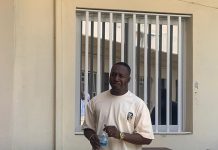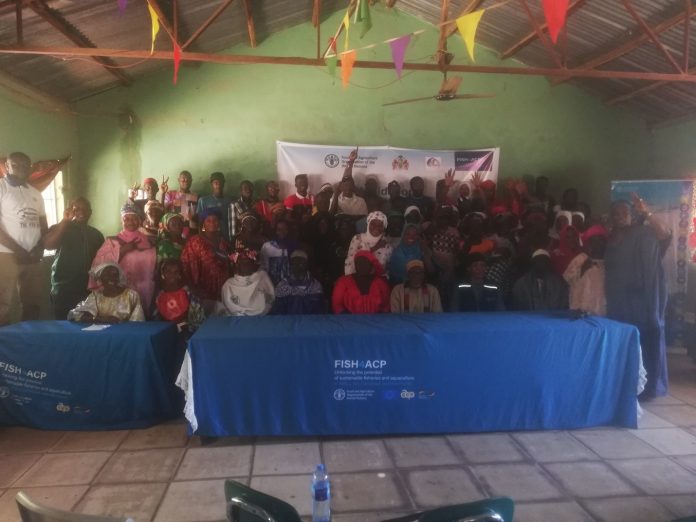By Madiba Singhateh
The Foni Bolong Oyster and Cockle Co-Management Plan was officially validated on Thursday, 10 April 2025, in Foni Bullock.
The event was organised by FAO’s Fish4ACP initiative in collaboration with Try Oyster Gambia, with funding from the European Union and the Government of Germany.
The validation marks a significant milestone in the sustainable management of oyster and cockle resources in the Foni Bolong area. The Fish4ACP project aims to enhance the productivity and competitiveness of the mangrove oyster sector in The Gambia—improving food security, boosting rural incomes, increasing exports, creating jobs, and stimulating investment.
Community-Driven Development
Khadija Diallo, a representative from FAO Fish4ACP and chairperson of the validation event, emphasized the importance of local participation. “This validation is essential for the Foni community. We want their active input to reflect their priorities, experiences with co-management, and their vision for a sustainable future in oyster, cockle, and fisheries management,” she said.
Isatou Jatta, a representative from the Foni Co-Management Committee, expressed gratitude for the progress made. “We are very happy. Compared to previous years, a lot has changed. The project brought structure—this year, the oyster season was opened on time, and everything worked smoothly,” she said. She appealed to donors to continue their support, noting the community’s commitment to sustainable practices.
Women at the Forefront
Fatou Janha, the coordinator of Try Oyster Gambia, praised the dedication of local women. “This has not been easy, but the women stayed committed. They left their daily work to attend monthly meetings and training sessions. Now, each of them understands the value of protecting water bodies and mangrove ecosystems,” she said.
Janha explained that the initiative started four years ago with support from USAID, focusing initially on the Bullock area. “We realized we couldn’t work with Bullock alone and ignore the surrounding communities. That’s when FAO Fish4ACP stepped in to help expand to six additional communities,” she noted.
A Step Toward Sustainability
FAO Representative Moshibudi Rampedi, delivering the opening statement at the event, thanked the EU and German Government for their funding. She described Fish4ACP as “an innovative intervention” supported by the African, Caribbean, and Pacific Group of States (ACP) and implemented by FAO.
“This validation is a great achievement. It shows how committed these communities are to sustainable resource management,” Rampedi said.
She also recognised FAO’s partnership with the Try Oyster Women’s Association, calling it a “noble collaboration” that empowers women and highlights their crucial role in fisheries and aquaculture.


















